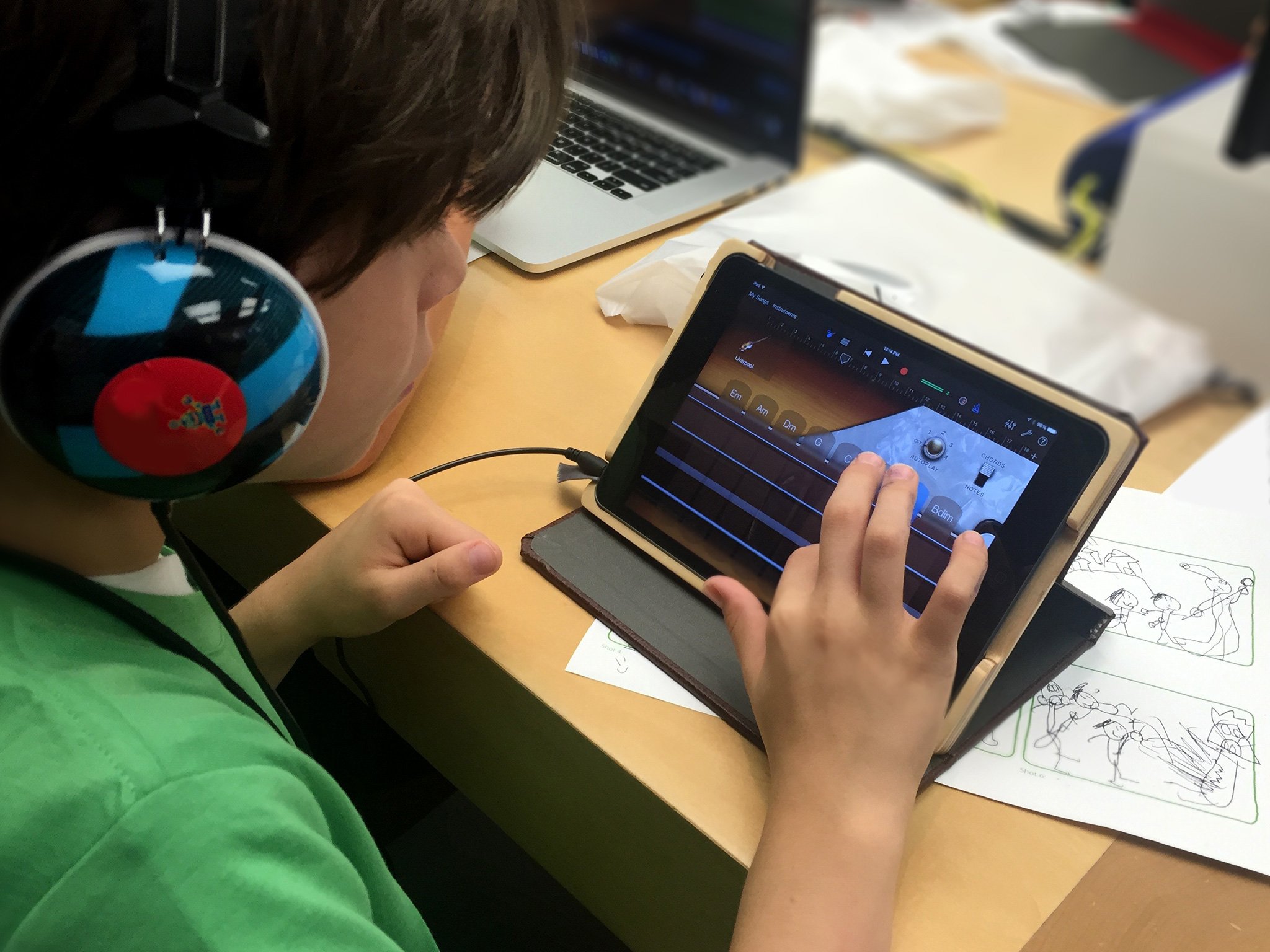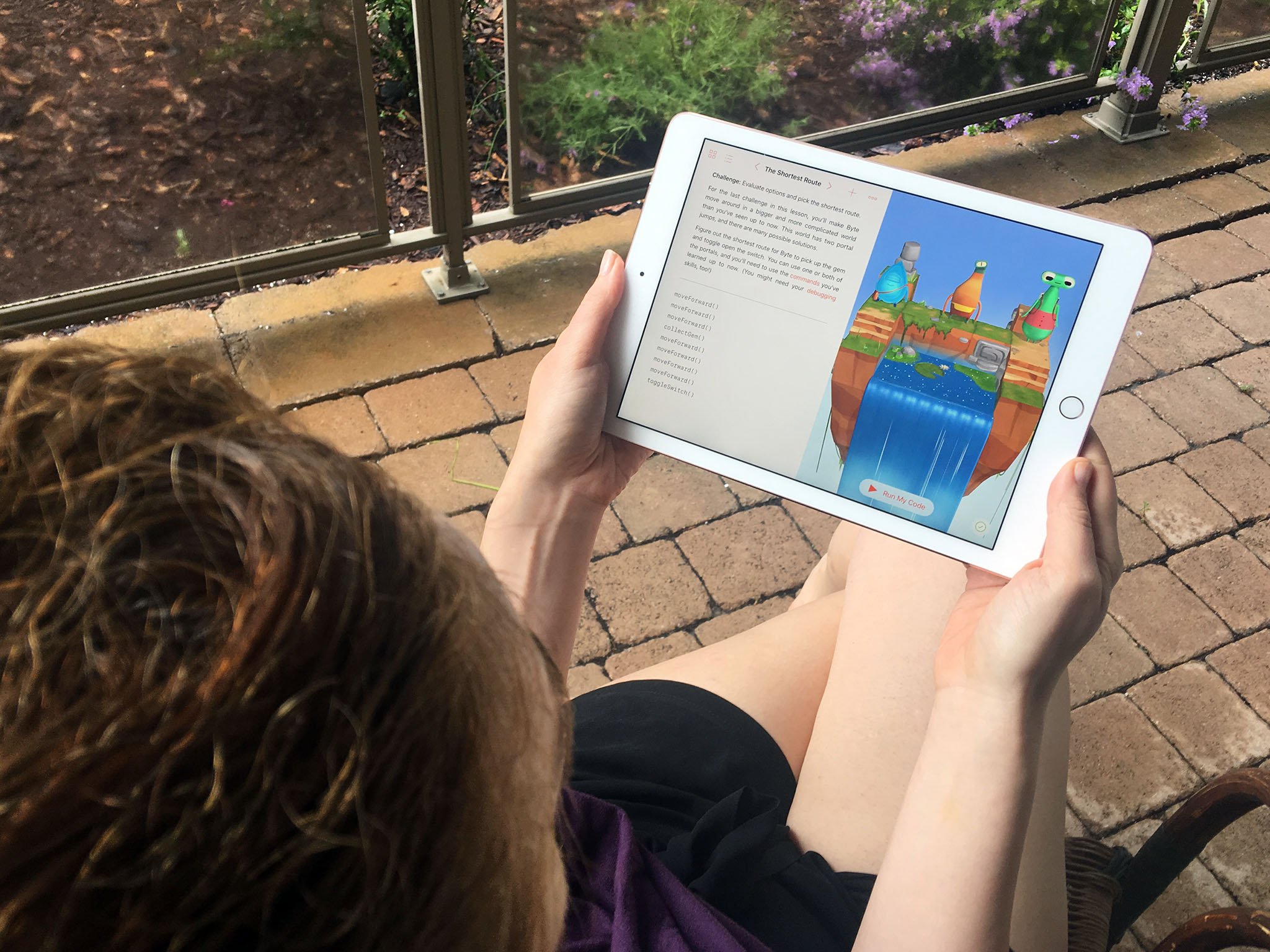This is how Apple can win education

Apple has an education event coming our way in a week. Realistic expectations range from a new, inexpensive 9.7-inch iPad, perhaps with Apple Pencil support, to an updated MacBook Air with a Retina display and modern chipset, to new services meant to help teachers and students do and share more in the classroom than ever before.
In the years since Apple last held an education event, though, Google has gone on a full-scale assault. The combination of cheap Chrome Books with easy-as-the-OS-is-a-browser maintenance, combined with the power of Google Accounts and free-or-cheap-as-in-data-subsidized services — whether you pay that now or in the future — had proven irresistible to resource and attention starved school systems.
The biggest advantages Apple has are its ability to offer a differentiated, end-to-end, best-in-class experience for its users, and its staunch stance on privacy and security. But Apple has only so much attention to spread across so many products. Not everything can be treated the same way as iPhone. And it's unclear, even in the age of massive privacy abuses, how much people, schools, teachers, and parents, are unclear or simply desensitized to those perils.
I recently spoke with education IT administrator Bradly Chambers about the challenges Apple faces in schools. You can listen to the podcast below, and read on for what I think might be the solutions.
Hardware
Apple's done a lot to bring down the price of its hardware. iPad is generally less expensive than any Mac, and bundling in iLife and iWork adds significant value. Macs are still expensive, though, and the least expensive Mac, the MacBook Air, is more than outdated.
But it's not just device cost that matters. It's total cost. Take even a cheap iPad, add a keyboard, dongles if you need them — and, if rumors are true, a Pencil — and the cost rises sharply.
Hardware from Apple is often far better built and lasts longer than the cheapest alternatives, but it has to provide more value and more longevity than several of the cheapest alternatives to break even.
Master your iPhone in minutes
iMore offers spot-on advice and guidance from our team of experts, with decades of Apple device experience to lean on. Learn more with iMore!
Continuing to drive down entry-level iPad pricing and updating the MacBook Air would be good steps towards making the Mac more compelling in a world of budget Chrome Books and Windows portables.
Would an iPad that's even more like a MacBook — an iOS-style laptop or convertible, so to speak — be an even better solution? I don't know.
Google uses its free-as-in-data-harvesting business model to subsidize its entire Chrome Book strategy. It knows that, by getting kids onto Google now, the data will flow for decades to come. How much Apple is willing to use hardware profits, current and future, to subsidize its education strategy remains to be seen.
Accounts

Google has a big lead here with Google Accounts. They give you access to a wide range of services, including mail, calendaring, Contacts, and the entire range of GSuite apps, from word processing to spreadsheets to presentations. You can also use your Google Account to log into many other apps and services, including productivity tools and even games.
They're not perfect, though. If you have multiple Google accounts, for example, school and personal, they don't always play well together and can make simple things like accessing your docs complex and confusing. That might not be a big deal to really young kids, but as kids get older and want a personal account for things like YouTube or gaming, or get other accounts for clubs or camps or teams, it can become one.
The school account itself can also become problematic because, ultimately, it belongs to the school and not the child. That means, if the child switches schools or graduates, they can and often do lose everything associated with that account — including access to other apps and services previously tied to that account. There are some workarounds, of course, but they're work.
Apple has an opportunity here to create a new Apple ID that's truly modern and flexible. An Apple ID that is personal by nature but can be assigned to — and aliased to — a school or institution for a period of time, switched between them, and taken with you as you move on.
It would also need to come with all the basic services, including Apple Mail, Calendar, Contacts, Photos, and everything else a regular iCloud user gets, especially the ability to upgrade it and store more content, even if it originates or is assigned to a school for a period of time.
It would also need to work as a way to sign into other apps and services, the way Google and Facebook do. And it has to be heavily evangelized so that apps and services integrate it the way they do Google and Facebook.
Because it's Apple, it should also be able to be easily reset and even deleted, so that if someone didn't want data to follow them around, they could make absolutely sure it couldn't.
Independance
Because Apple has traditionally found its success in avoiding the checkboxes of institutionalized IT and selling directly to consumers, its come to deeply emphasize the personal in personal computing. In such a scenario, single user / single device paradigms are increasingly quaint but still viable. Not so much in schools.
Part of the value proposition of Chrome Books is that you can add an account to the system, log that account in, and the device becomes that person's device, with all their content and data linked and synced and ready to go. If that device is later damaged or reassigned, a simple log out and log in can let devices change users and users change device with almost no effort at all.
Apple can do this, at some level, for personal devices and individuals. It can't yet do it for institutional devices and groups. At least not quickly and completely.
Purchasers need devices to be affordable. Users need accounts to be powerful. Administrators need those devices and accounts to be easily manageable.
Apple could lead the way here too, with accounts that are as powerful and private as they are portable.
Documents

Office was the lynchpin of Microsoft's previous success in organizations. GSuite, formerly knowns as Google Docs, is the lynchpin of Google's current success. iWork, for all its elegance and slowly increasing capabilities, has never been Apple's lynchpin in anything.
Yet the ability to handle words, numbers, and slides remains key.
Apple could do what it does in situations where it believes it doesn't have to be the one to provide the entire solution, just a great experience for the solutions supplied by others, and work to make GSuite and Microsoft Office work as well as possible in both app-form and Safari. But then Apple remains dependent on Google and Microsoft and Apple users are forced to maintain multiple accounts — or at least an additional account for Google or Microsoft.
The alternative is to make iWork a priority, and a product as driven on the software and services side as iPad is on the hardware side. That would take resources and focus, though, which are things even Apple can't maintain for everything, all the time.
Given how entrenched Office and GSuite are in the market, an enhanced version of Apple's current hybrid approach might work best: Offer iWork but also offer compatibility and interoperability with Microsoft and, if and as possible, Google. Just be more aggressive about it, up to and including moving updates to a more service-style, more constant type of delivery.
Apple could also continue to promote its coding efforts. From Swift Playgrounds to education curriculums, Apple's been leading the way in coding as a first-priority language for children. Giving both teachers and students a Hypercard-style way to learn and create code could give Apple an edge in the tools space beyond simple document suites.
Conclusion
Doing all of the above will require significant resources, including time and attention. Some of it, especially a modernized Apple ID system and the ability to handle account switching across iOS devices, is important well beyond education. Given everything else Apple is juggling — and some would argue dropping balls on — can it afford the focus a full-on, end-to-end education experience would demand?
Google has its sights set on making sure that, even if people are queasy about their assimilation of student data now, it'll have crept into their lives early on, making that assimilation far easier later. That makes a privacy-first alternative from Apple not just compelling, but critical.
Still, my inner pragmatist tells me we'll see our new, entry-level iPads and maybe MacBooks, and some interesting new tools for teachers and students, but that's about it. At least for now.
As is often the case with Apple, the company may not want the entire market, just a specific, premium segment of it where free or cheap isn't the most important feature and iPads and MacBooks are more highly valued.
We'll start finding out next Tuesday.

Rene Ritchie is one of the most respected Apple analysts in the business, reaching a combined audience of over 40 million readers a month. His YouTube channel, Vector, has over 90 thousand subscribers and 14 million views and his podcasts, including Debug, have been downloaded over 20 million times. He also regularly co-hosts MacBreak Weekly for the TWiT network and co-hosted CES Live! and Talk Mobile. Based in Montreal, Rene is a former director of product marketing, web developer, and graphic designer. He's authored several books and appeared on numerous television and radio segments to discuss Apple and the technology industry. When not working, he likes to cook, grapple, and spend time with his friends and family.
